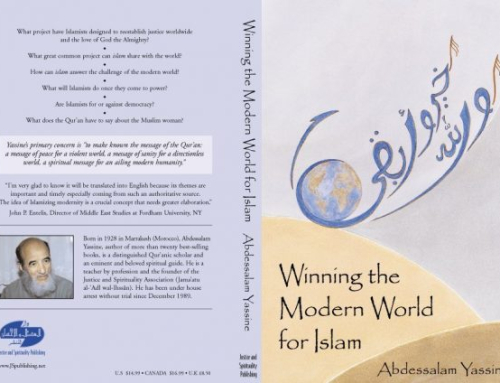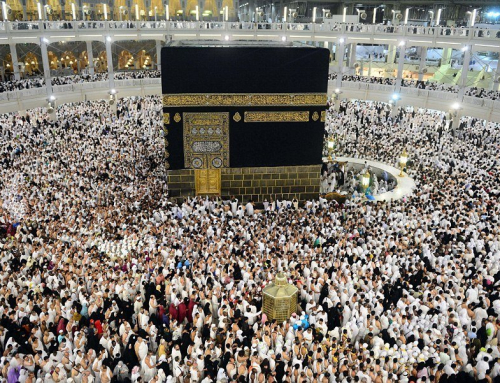Mounir Birouk
December 12, 2014
Triads in the Concept of Education in the Thought of Imam Abdessalam Yassine
I- Towards a Lordly and Balanced Education
The prophetic method condenses, in a systematic way, the theoretical and practical conclusions which Imam Abdessalam Yassine (1928-2012) deduces from his contemplative reading of the Qur’an and the Tradition of the Prophet [God bless him and grant him peace]. It provides applicable ways to renew faith in the heart of the believer and renew religion in the reality of the Umma. At the heart of the Prophetic Method lies the much ignored concept of education. What is education? How could it bring about change in the individual and the Umma? And what are its conditions, regulations and pitfalls? In a couple of articles, I try to answer these question, tracing the concept of education through a couple of triads which Imam Yassine himself articulates in his books.
What is Education?
Education is a central concept in the Prophetic Method. While the Holy Qur’an lays out its founding principles, the practical tradition of the Prophet [God bless him and grant him peace] provides us with an outstanding embodiment and didactic down-to-earth enactment of these principles.
To begin with, education is key to change. Because the individual is the basic unit of the social structure, no communal change can take place before the transformation of the individual himself. The latter is the locus of change and its bearer. God Exalted is He says: (Lo! Allah changes not the condition of a folk until they (first) change that which is in their hearts) [13:11]. Hence, meaningful change starts from the individual and is not imposed or forced; it is internal not external and radical not superficial. In other words, the required deep transformation takes place in the heart of the believer, and always precedes the political, social and economic changes. The Messenger of God [God bless him and grant him peace] said: “There is in the body a clump of flesh – if it becomes good, the whole body becomes good and if it becomes bad, the whole body becomes bad. And indeed it is the heart.”
In its core, education as it is articulated in the Prophetic Method is lordly in its nature, and its exemplary products are lordly and God-fearing men and women. In the third chapter of the Qur’an, the Almighty says (But be lordly by virtue of your constant teaching of the Scripture and of your constant study thereof) [3:79]. In the tradition of the Prophet [God bless him and grant him peace], the word Ihsan is used to convey the same meaning. In the famous hadith of Gabriel [God grant him peace], the angel comes in a captivating didactic scene to teach the believers the meanings of Islam. We accordingly learn that religion is not merely an articulation of faith and a set of acts and rituals. Thanks to the interaction between Gabriel and the Prophet [God bless them and grant them peace], we learn that Islam is something like a three story-building which is composed of Islam, Iman and Ihsan. The more one advances in the obedience of God and strives in His way, the more he ascends in these ranks. And blessed is he who reaches the glorious rank of Ihsan: (and God loves the people of Ihsan) [3:134].
Imam Abdessalam Yassine though warns that the word ‘Ihsan’ has to be understood in its three meanings:
1. Spiritual excellence:
This is the meaning which is articulated in the hadith of Gabriel “you worship God as though you see him”. This meaning addresses the individual believer with regards to his spiritual journey and his eagerness to be included amongst those whom God Most High loves most: (He selects for His mercy whom He wills. And Allah is the possessor of great bounty) [3:74].
2. Excellence:
Also perfection, in its general meaning. Whatever, the believer does, whether a prayer, a family errand or a task at work, he is required to do it as perfectly as s/he can.
3. Charity:
The concern about and care for people around is something without which the iman of the believer becomes tarnished and flawed. The true believer shares people’s joys and pains, and never escapes social and humanitarian commitments.
What Imam Yassine deduces from all this is that the Quranic education is lordly in its nature, its aim being to please the Almighty and aspire to His encounter. However, its spiritual concern should not drive the believer aloof from his political and social commitment to help people, to struggle for the poor and the wretched and to contribute to the establishment of the justice. These two overarching aims- spirituality and justice- frame Imam Abdessalam Yassine’s view of education and change. Only by worrying about one’s faith and one’s status in God’s eyes, and by caring about fellow believers and humanity at large education becomes balanced, profound and fruitful.















